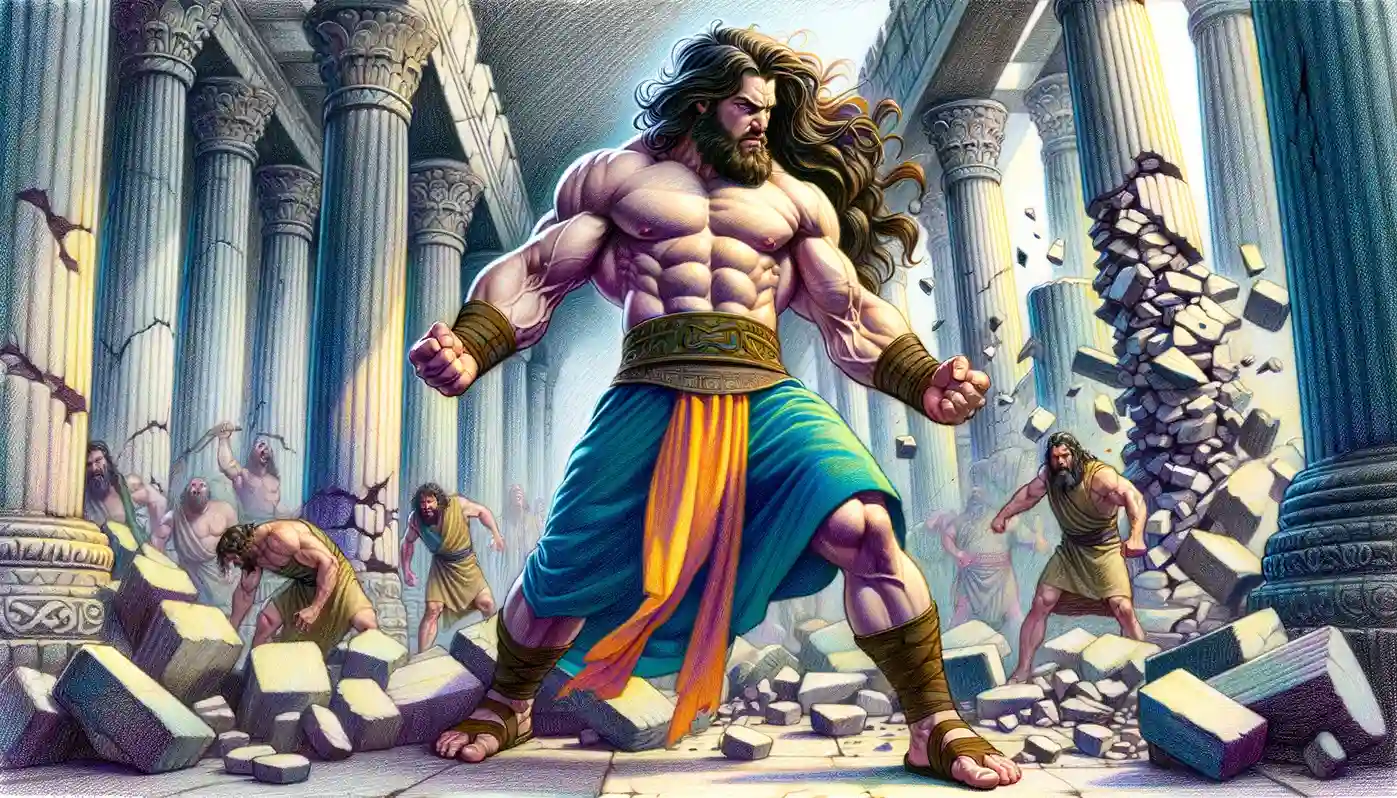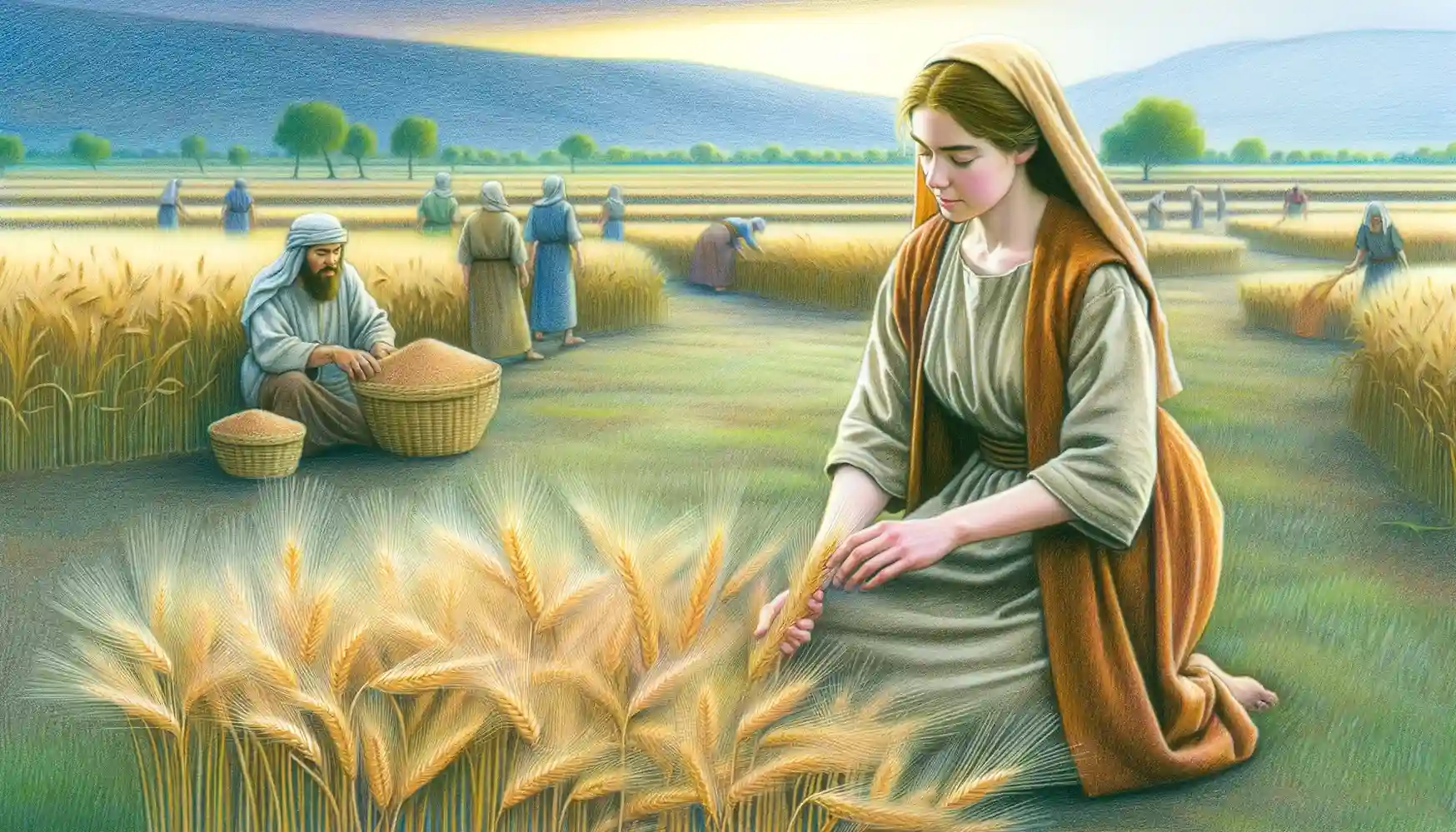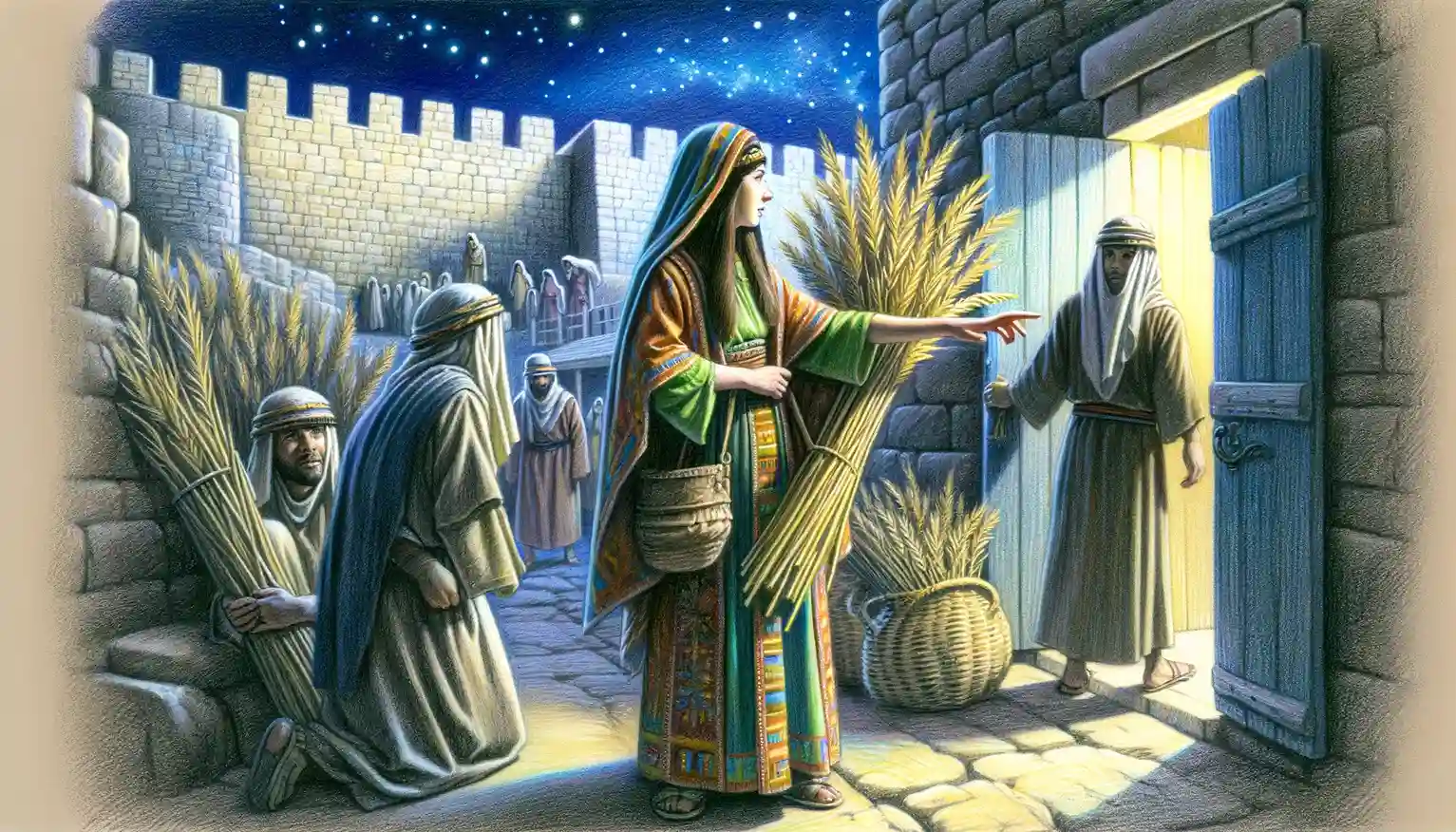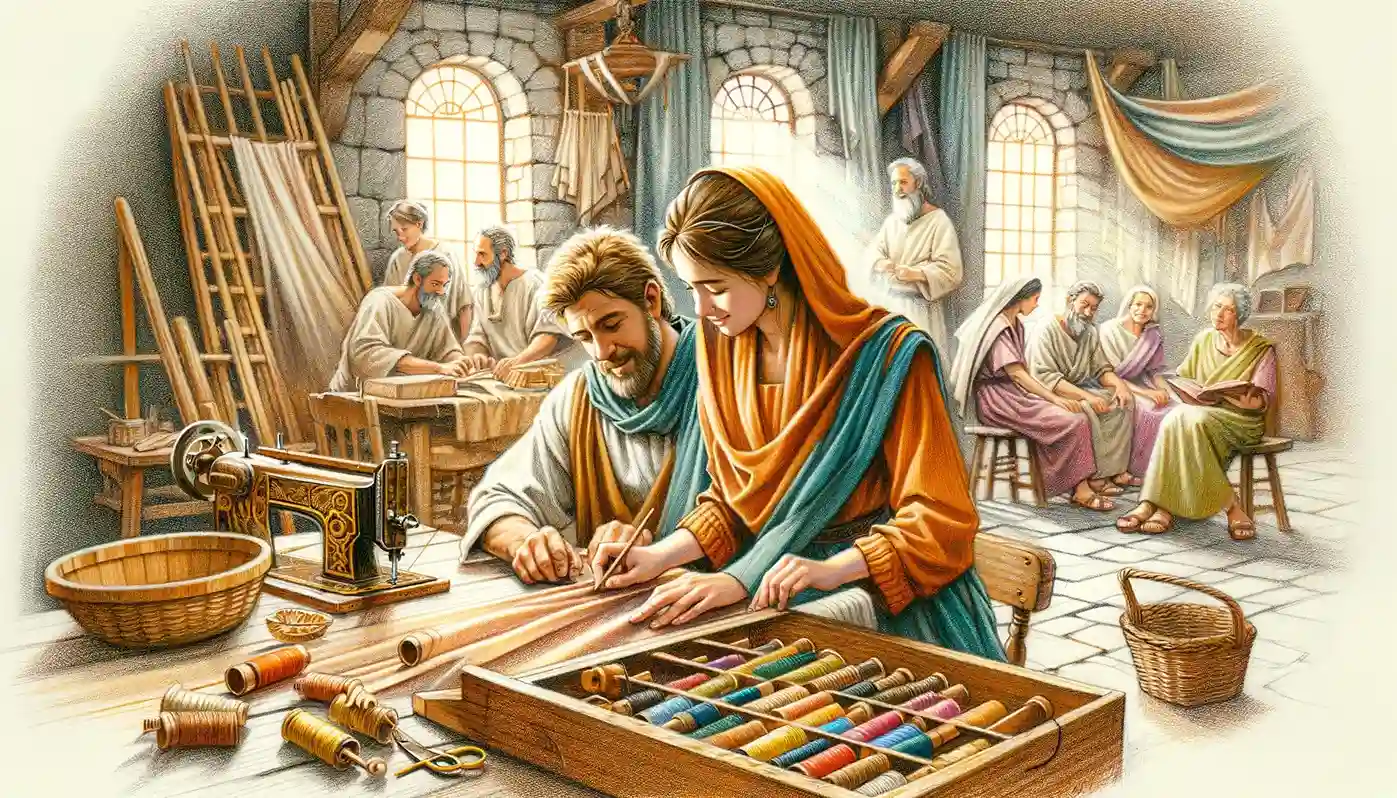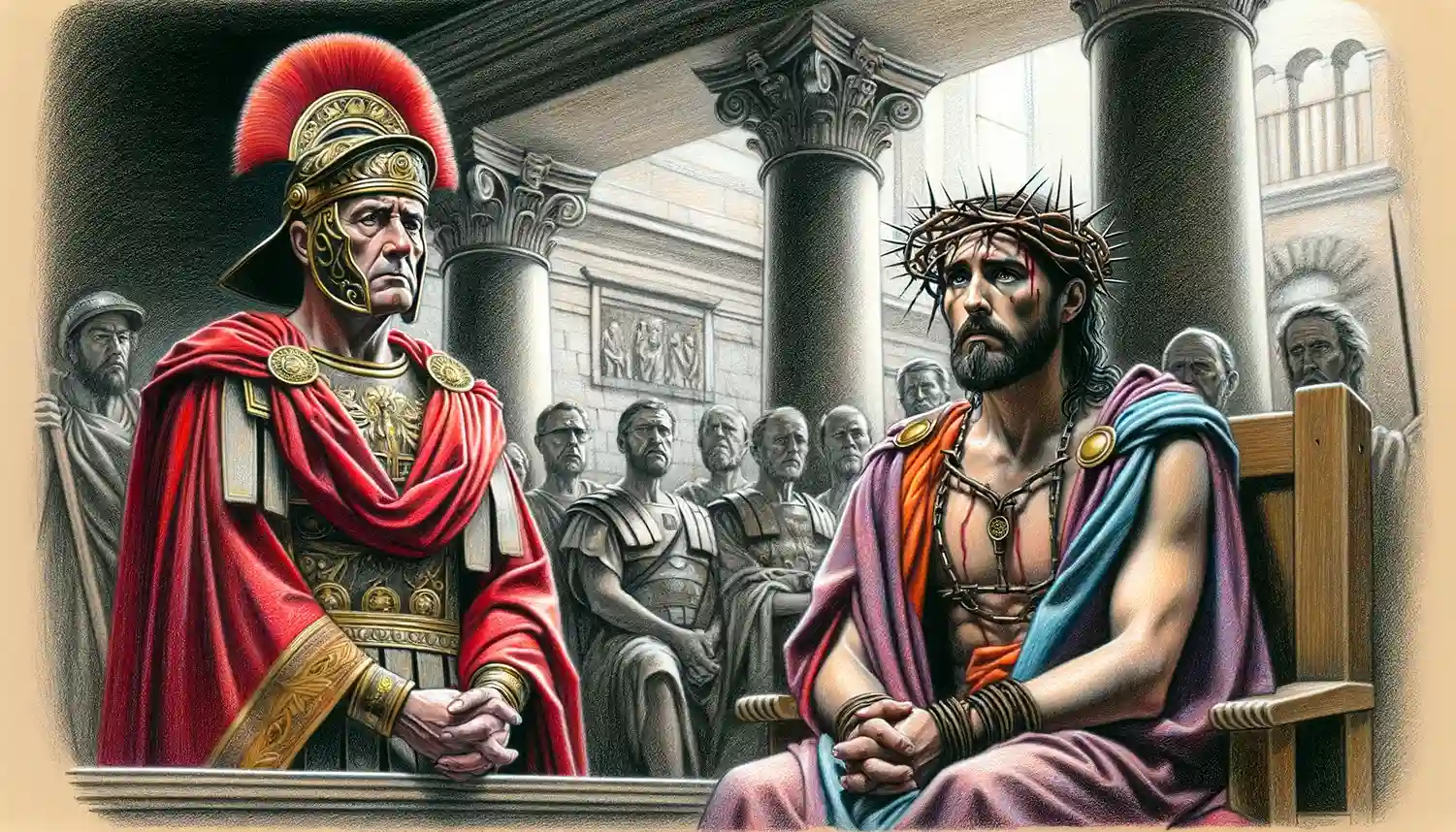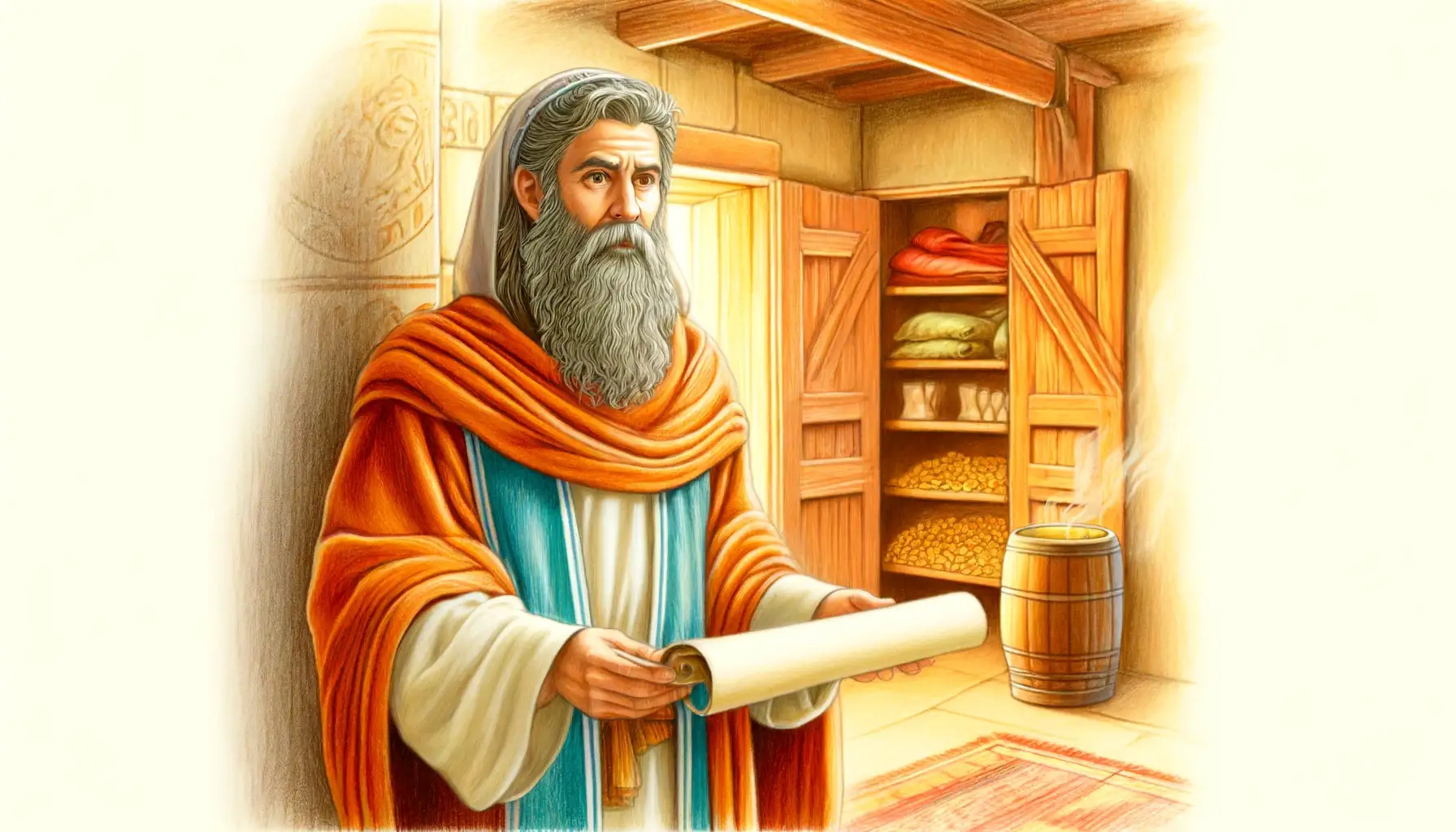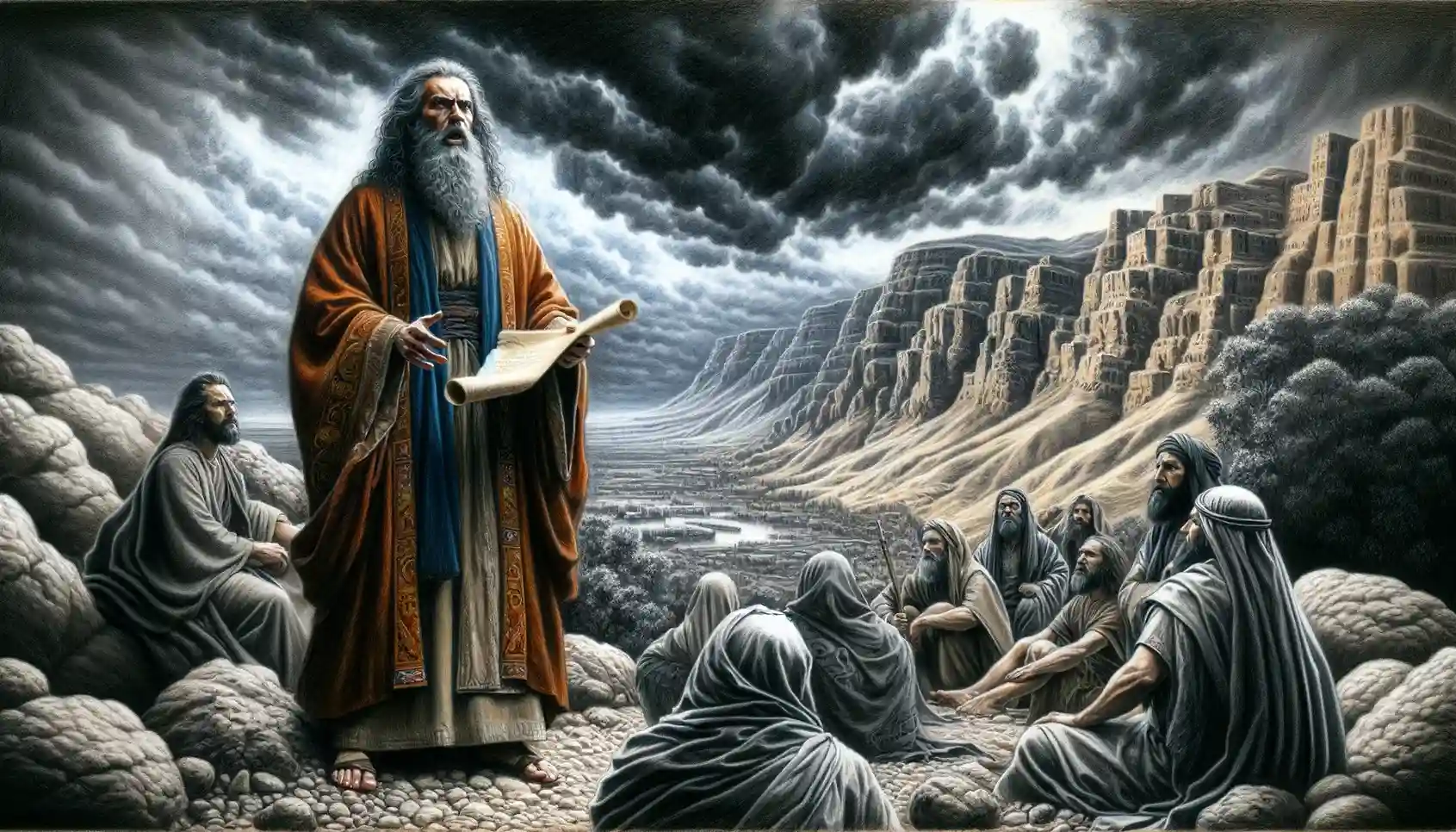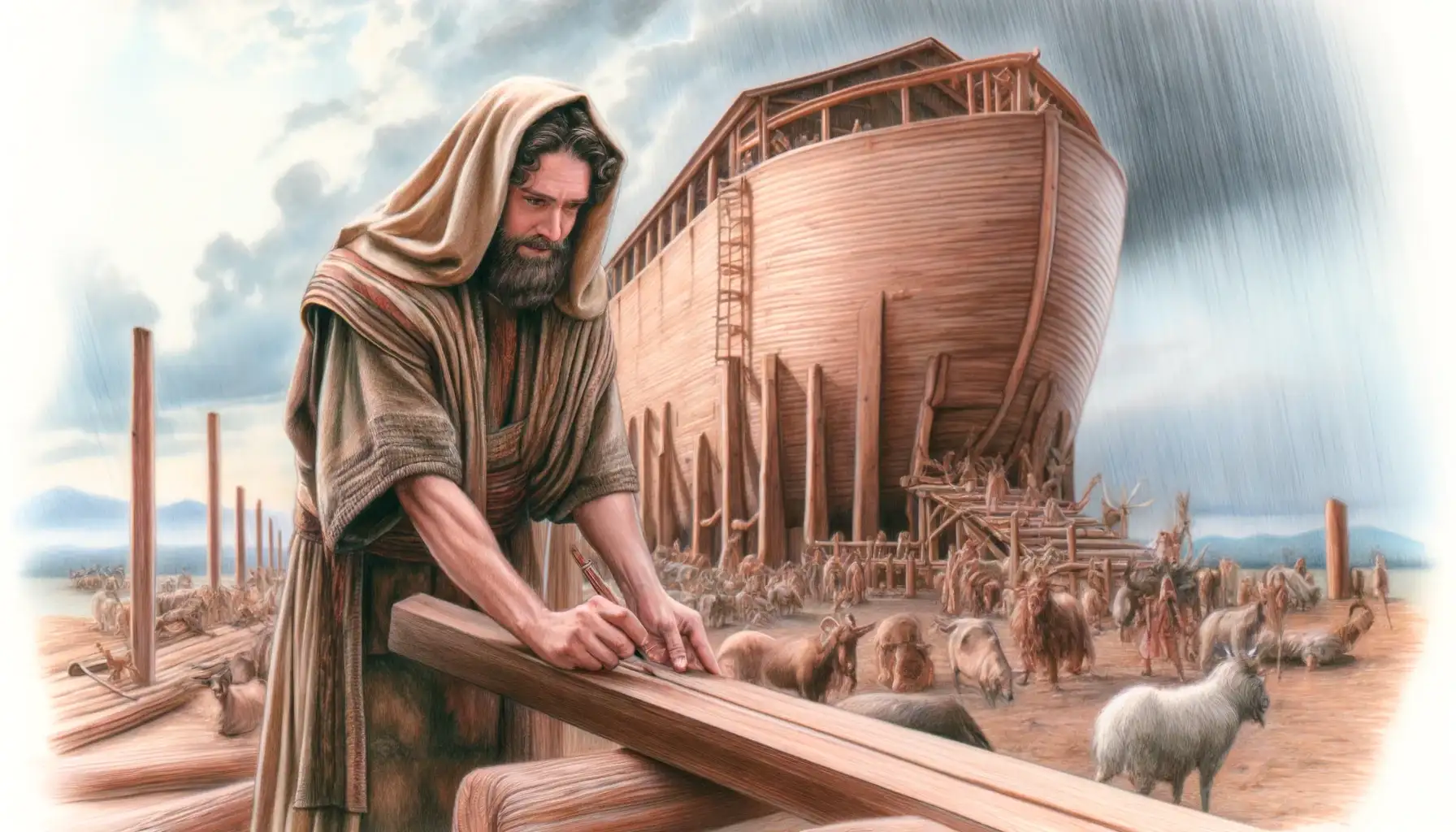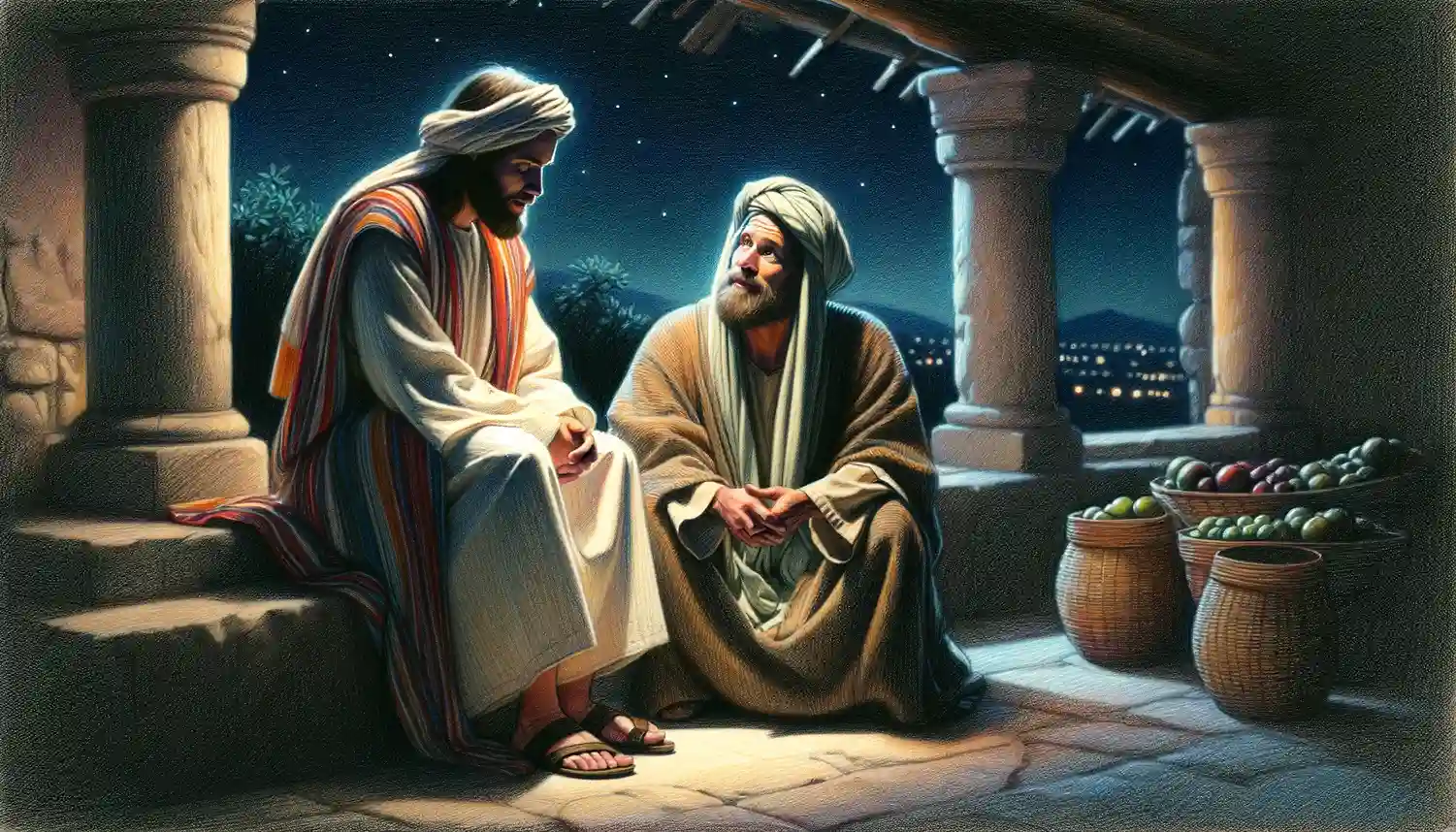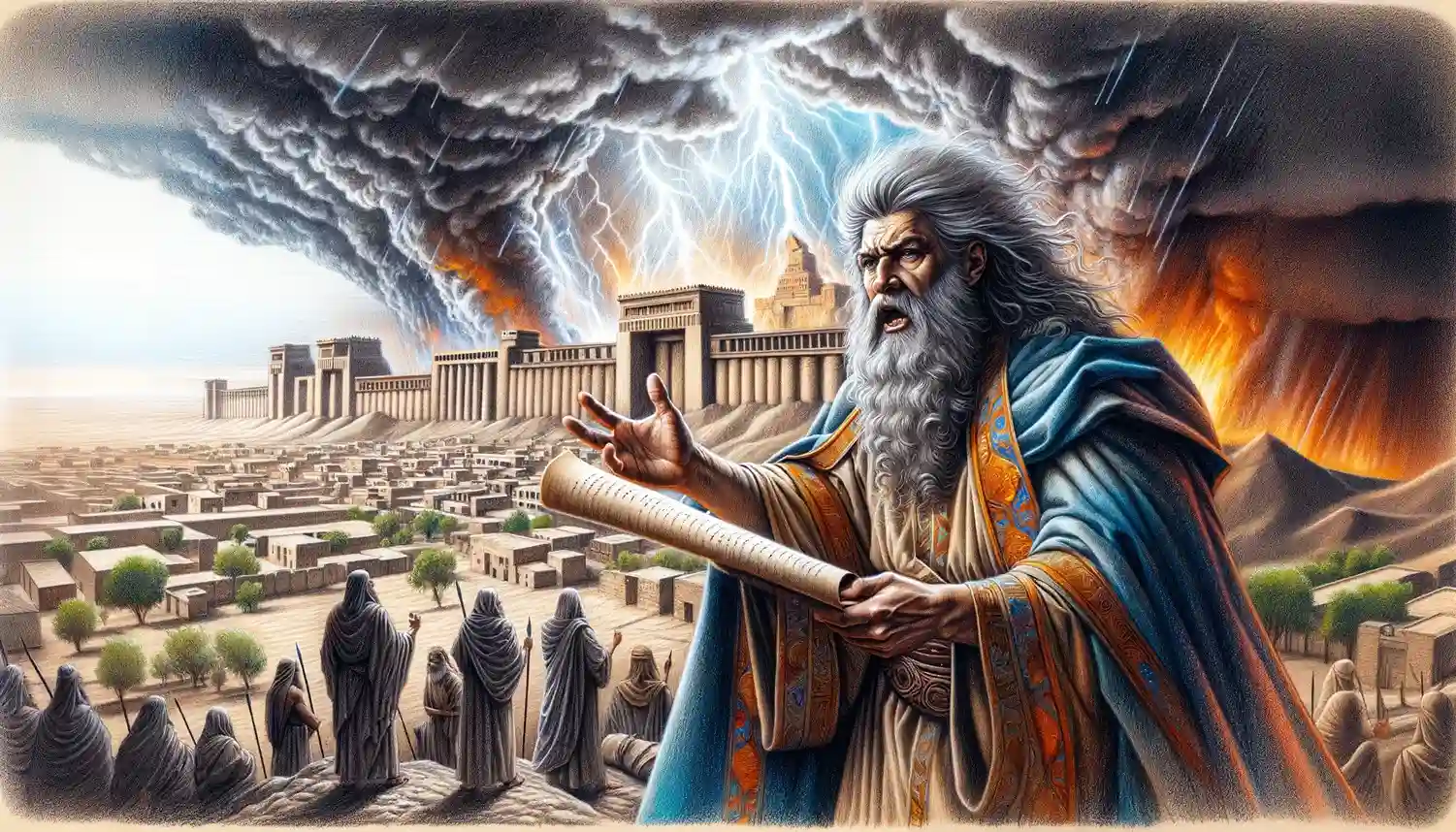Samson, a Judge of Israel known for his incredible strength linked to his Nazirite vow, waged conflict against the Philistines, and despite his eventual betrayal and imprisonment, achieved a final act of redemption by bringing down the temple of Dagon, killing many Philistines.
Ruth, a Moabite woman known for her loyalty to her mother-in-law Naomi, married Boaz in Bethlehem and became the great-grandmother of King David, highlighting themes of devotion, redemption, and divine providence.
Rahab, a prostitute in Jericho, helped Israelite spies and expressed her faith in God, leading to her and her family’s salvation during Jericho’s conquest; she later became an ancestor of Jesus, illustrating the power of redemption and God’s inclusive grace.
Priscilla and Aquila, tentmakers and early Christian converts, assisted the Apostle Paul in his missionary work, hosted house churches, instructed Apollos, and played a significant role in the early church’s growth and leadership.
Pontius Pilate, the Roman governor of Judea, presided over the trial of Jesus and sentenced Him to crucifixion, a decision portrayed with reluctance in the Gospels, and symbolically washed his hands to show he was not responsible for Jesus’ death.
Philemon, a Christian slave owner in Colossae, received a personal letter from the Apostle Paul advocating for the welfare and reconciliation of his runaway slave, Onesimus, emphasizing forgiveness, reconciliation, and Christian brotherhood.
Obadiah, a minor prophet, delivered a prophecy focusing on the divine judgment against Edom for its betrayal and cruelty towards Judah, emphasizing themes of divine justice, the restoration of Israel, and the ultimate triumph of God’s kingdom.
Noah, a righteous man chosen by God, built an ark to survive the Great Flood, preserving his family and pairs of every kind of animal, and established a covenant with God promising never to destroy the earth with a flood again.
Nicodemus, a Pharisee and member of the Jewish ruling council, visited Jesus at night to discuss spiritual matters, later defending Him before the Sanhedrin and assisting in His burial, symbolizing a journey from curiosity to faith.
Nahum, a prophet in the Hebrew Bible, prophesied the fall of Nineveh, emphasizing divine justice and the inevitable downfall of oppressive powers, while offering a message of hope and comfort to Judah.

